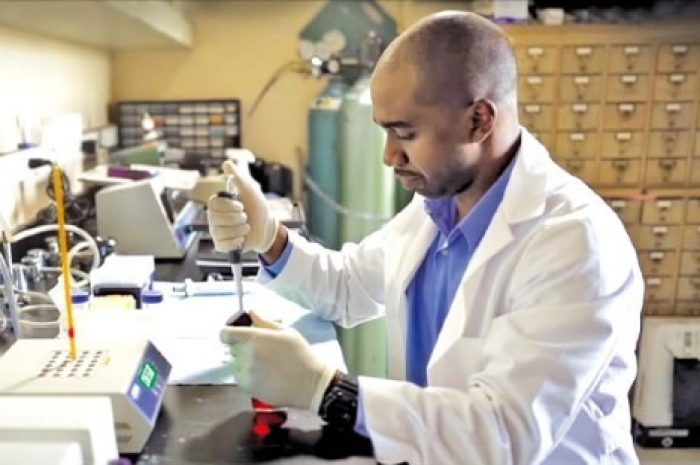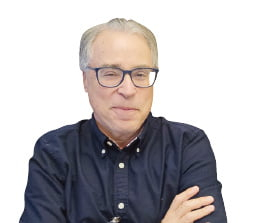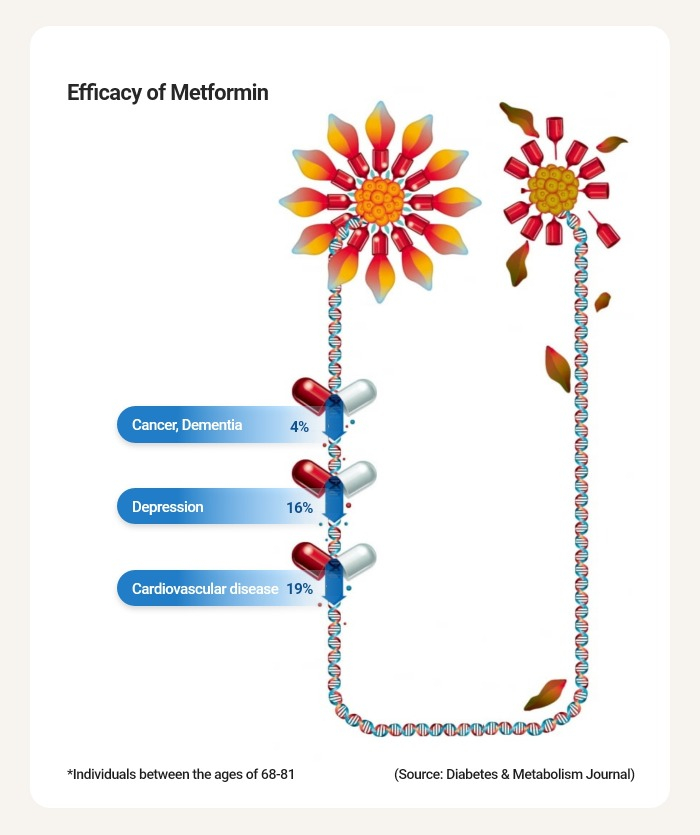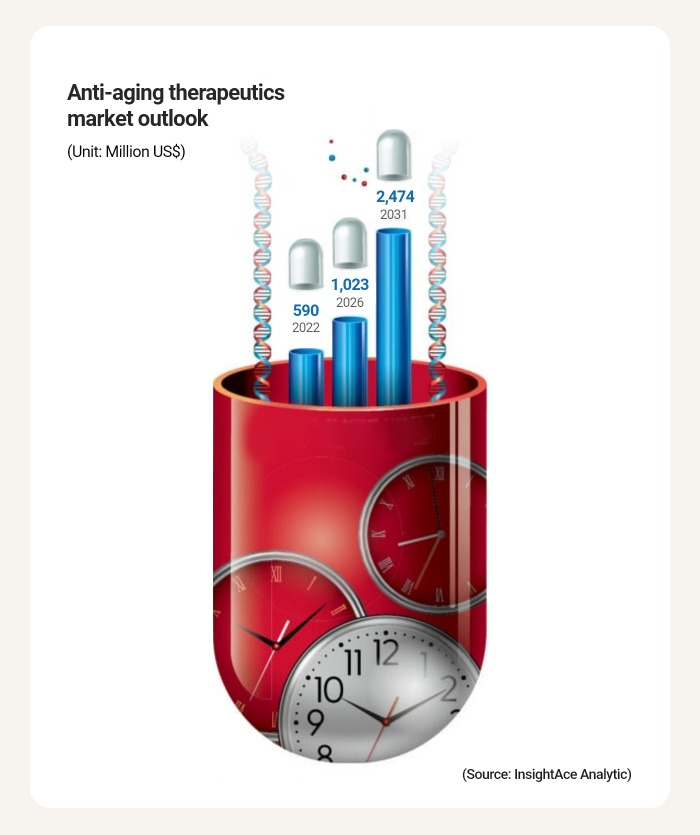Bio & Pharma
Global quest to find modern elixirs enters new chapter
Human clinical trials of metformin to prove its efficacy in delaying the onset of age-related conditions will begin this year
By Mar 26, 2024 (Gmt+09:00)
4
Min read
Most Read
LG Chem to sell water filter business to Glenwood PE for $692 million


Kyobo Life poised to buy Japan’s SBI Group-owned savings bank


KT&G eyes overseas M&A after rejecting activist fund's offer


StockX in merger talks with Naver’s online reseller Kream


Mirae Asset to be named Korea Post’s core real estate fund operator



NEW YORK/ BOSTON – Longevity has long been the dream of humankind.
China’s first emperor Qin Shi Huang was obsessed with finding magic elixirs to extend life before dying at 49 in 210 B.C., and in the Middle Ages, alchemists were on a quest for mythical substances to achieve immortality.
Sadly, none of them has ever been proven effective in finding the key to eternal life.
With advancements in modern sciences like the development of genome sequencing, the world is, however, about to take a big leap in its journey to find the key to a long and vibrant life, which could upend the history of mankind.
“We are planning a clinical trial that will engage 3000 individuals over age 65 to prove that metformin can delay aging," Nir Barzilai, M.D., founding director of the Institute for Aging Research at the Albert Einstein College of Medicine in New York, said to The Korea Economic Daily during an interview conducted in New York in February.

Tornado Therapeutics also plans to begin human clinical trials of its novel anti-aging drug candidate this year.
METFORMIN, INEXPENSIVE DIABETES MEDICATION
Costing $0.17 per pill, metformin is an inexpensive diabetes medication that’s been around since the 1950s. As it has shown its efficacy in delaying aging in animals, the medication has drawn great attention around the world.
In 1991, the US National Institutes of Health unveiled its finding that the lifespan of metformin-treated mice was extended by 6%. Several other researches also showed that metformin was effective in treating age-related diseases such as cancer, dementia and cardiovascular disease.
Metformin is a synthetic derivative of French Lilac, a traditional herbal plant long used in Europe for medicinal purposes.

Barzilai will orchestrate a six-year nationwide clinical trial of metformin, the so-called TAME clinical trial, in the US this year.
TAME refers to the Targeting Aging with Metformin Trial, and it will be carried out by 14 leading research institutions across the US, including the Barzilai-led team.
It will test 3,000 individuals between the ages of 65-79 who take metformin once a day and analyze their progression of age-related diseases, Barzilai said.
Barzilai also takes a daily dose of metformin. He has discussed the use of metformin in slowing aging with the US Food and Drug Administration (FDA) for the past decade.
"It's important to control every disease caused by aging in order to make long lifespan and healthy lifespan go together," said Barzilai. "Metformin would become the first approved drug that will target the very cause, aging."
Once it is approved by the FDA as a treatment for aging, it is expected to lead to a paradigm shift in the human aging process, the scientific community also expected.
RAPAMYCIN, THE NEXT TO BEGIN HUMAN CLINICAL TRIALS
There are hundreds of metformin-like medications and substances expected to delay or reverse aging.

Tornado Therapeutics in Boston is another renowned biotech research center that studies modern elixirs of life.
Led by CEO Joan Mannick, Tornado Therapeutics has been leading research on the FDA-approved drug rapamycin (mTOR), used as an immunosuppressant drug for organ transplantation since the 1990s, to develop anti-aging treatments.
Before Tornado Therapeutics, Dr. Mannick was co-founder and chief medical officer of resTORbio, which was a spinout of a clinical program targeting aging biology that she led as an executive director at the New Indications Discovery Unit of the Novartis Institutes of Biomedical Research.
As many studies have shown mTOR has been effective in preventing or reversing multiple age-related health deficits since 2000, rapamycin is also at the center of anti-aging treatment research.

Tornado Therapeutics is developing safe anti-aging treatments using the TOR-101 platform in the pipeline.
The company plans to begin human clinical trials of the TOR-101 this year.
"The clinical trial will go on this year," said Mannick. "I am expecting the first FDA-approved drug that targets anti-aging biology in 10 years."
MORE ANTI-AGING TREATMENT CANDIDATES
Nicotinamide adenine dinucleotide (NAD), taurine and melatonin are other promising candidates that are expected to slow aging.
Especially, melatonin, a widely used ingredient in sleep supplements, has been shown to abate oxidative damage.
The TAME is expected to be followed by clinical trials of these other anti-aging treatment candidates.
"When we think of Elon Musk of SpaceX, he had so many rockets blow up before succeeding," said Mannick.
"Anti-aging research is just happening. We also need time and failure to do it better."
Write to Jeong Min Nam at peux@hankyung.com
Sookyung Seo edited this article.
More to Read
-
 Bio & PharmaReversing age possible in a decade: Harvard Prof. David Sinclair
Bio & PharmaReversing age possible in a decade: Harvard Prof. David SinclairMar 18, 2024 (Gmt+09:00)
long read
Comment 0
LOG IN


